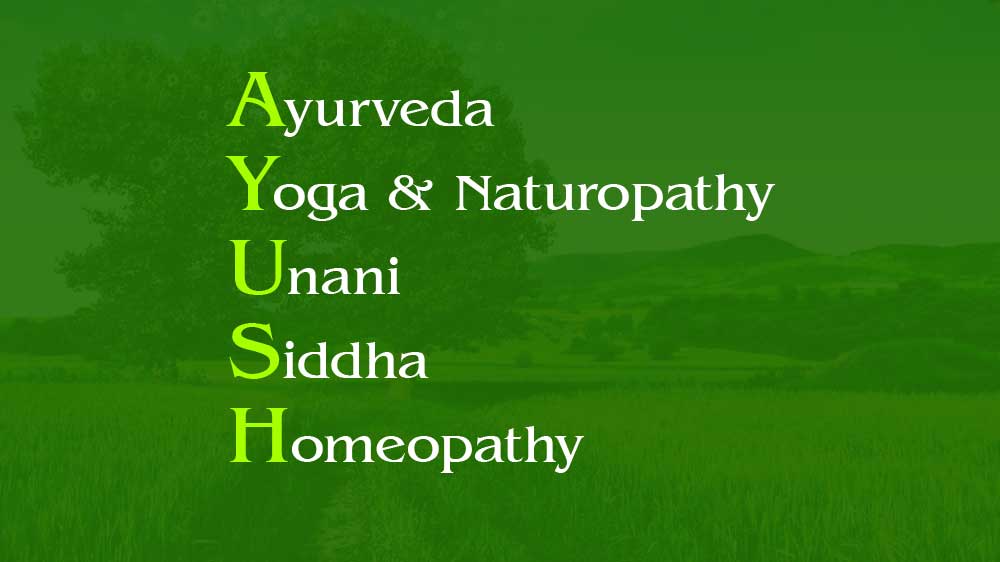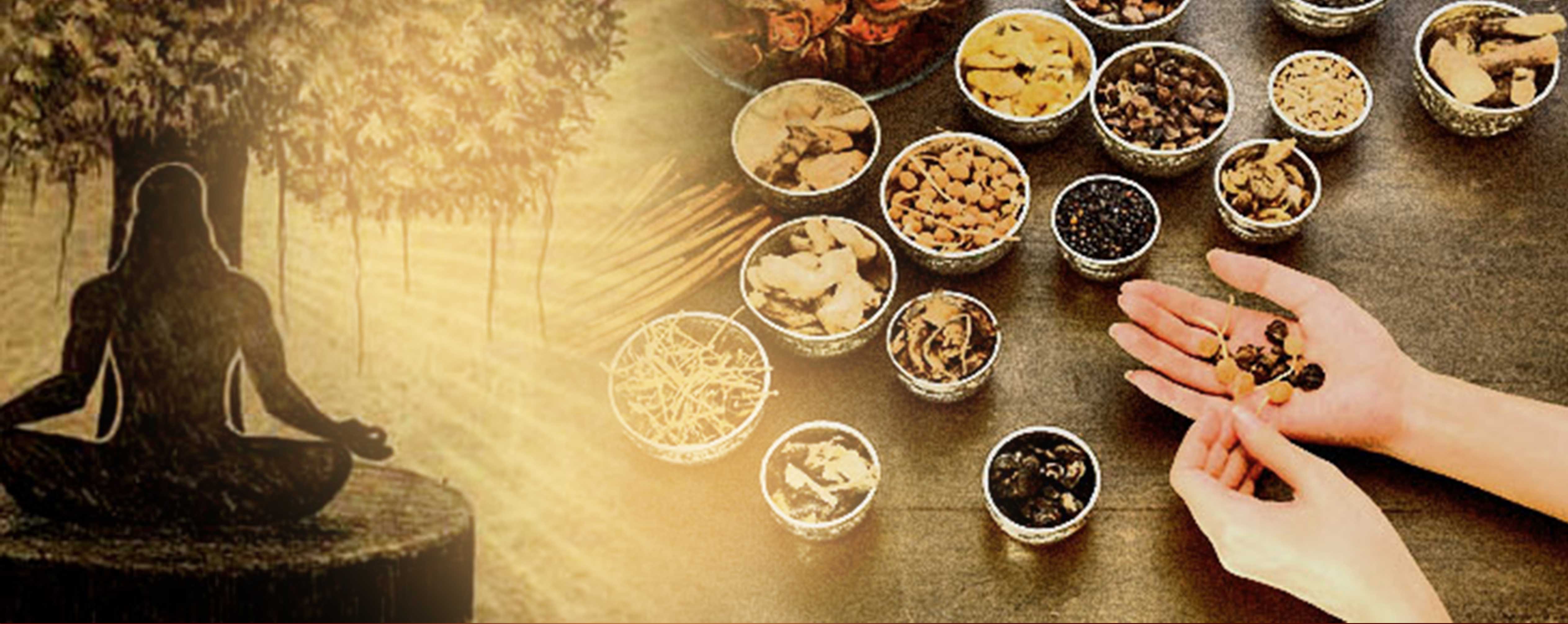AYUSH; Medicine without Science?
 A lady went to consult a doctor. After some tests and examinations, the lady was diagnosed with cancer. The doctor was one of the well-known oncologists. The lady was literate and rich. But some of her colleagues injected into her mind that chemotherapy is painful and has a lot of side effects. Also, they advised her to go for natural medicines since it wouldn’t have side effects. She considered their opinion and went for natural treatments. They were right, since no side effects can be noticed in a deceased patient!
A lady went to consult a doctor. After some tests and examinations, the lady was diagnosed with cancer. The doctor was one of the well-known oncologists. The lady was literate and rich. But some of her colleagues injected into her mind that chemotherapy is painful and has a lot of side effects. Also, they advised her to go for natural medicines since it wouldn’t have side effects. She considered their opinion and went for natural treatments. They were right, since no side effects can be noticed in a deceased patient!
The price of choosing alternative medicine over scientifically proven medicine for a highly critical disease was her life itself. Ayurveda and other forms of alternative medical treatments are increasingly preferred by people in India. What may be the prime reason for this attitude? It’s the belief that it doesn’t have any side effects. Ayurveda, Homoeopathy and other forms of alternative medicine are considered ‘safe’ by a large number of people. But is it really safe?
No country recognizes AYUSH as a branch of medicine other than India anymore. Our country also provides a medical degree for such practices. But the most alarming fact here is that nowadays, these AYUSH doctors are slowly replacing the modern evidence based medicine (EBM). But do they have the necessary knowledge to prescribe modern evidence based medicine? NO!! Starting with Ayurveda, let us go through some facts regarding AYUSH medicine.
Ayurveda, Safe or unsafe?
 Even in this scientifically advanced world, a large number of people still consider Allopathic medicine “unsafe” pointing out the side effects and cost. A survey by market research firm Nielsen found that the natural segment accounts for 41 percent of the total of Rs 44,790 crore personal care market share. As we say every coin has two sides, while a large number of people follows ayurvedic treatment, there was an instance where the Advertising Council of India (ASCI) pulled up a slew of brands for making misleading or false claims in their ads or not adequately substantiating these claims which were found to be in violation of its code. Among these were new age alternative medicine companies which made false claims. Ayurveda is a treatment which follows the method of natural healing using herbs and its products. But that doesn’t mean that every herb is safe. Even “Charaka Samhitha”, the Sanskrit text on Ayurveda, states that any substance in the universe, either medicine or poison, cannot be 100 percent safe. All that matters is the dosage and length of exposure. Ayurvedic products either are made of only herbs or the combination of herbs. Some of the ayurvedic products have the potential to be toxic. Most of the materials used in them haven’t been studied in the clinical trials for safety either. In 2008, an NCCIH (National Center for Complementary and Integrative Health) funded study examined the content of 193 Ayurvedic products purchased over the Internet and manufactured in either the United States or India. The researchers found that 21 percent of the products contained levels of lead, mercury, and/or arsenic that exceeded the standards for acceptable daily intake.
Even in this scientifically advanced world, a large number of people still consider Allopathic medicine “unsafe” pointing out the side effects and cost. A survey by market research firm Nielsen found that the natural segment accounts for 41 percent of the total of Rs 44,790 crore personal care market share. As we say every coin has two sides, while a large number of people follows ayurvedic treatment, there was an instance where the Advertising Council of India (ASCI) pulled up a slew of brands for making misleading or false claims in their ads or not adequately substantiating these claims which were found to be in violation of its code. Among these were new age alternative medicine companies which made false claims. Ayurveda is a treatment which follows the method of natural healing using herbs and its products. But that doesn’t mean that every herb is safe. Even “Charaka Samhitha”, the Sanskrit text on Ayurveda, states that any substance in the universe, either medicine or poison, cannot be 100 percent safe. All that matters is the dosage and length of exposure. Ayurvedic products either are made of only herbs or the combination of herbs. Some of the ayurvedic products have the potential to be toxic. Most of the materials used in them haven’t been studied in the clinical trials for safety either. In 2008, an NCCIH (National Center for Complementary and Integrative Health) funded study examined the content of 193 Ayurvedic products purchased over the Internet and manufactured in either the United States or India. The researchers found that 21 percent of the products contained levels of lead, mercury, and/or arsenic that exceeded the standards for acceptable daily intake.
What does the science say about the effectiveness of Ayurvedic Medicines?
While the modern medicine is based on clinical trials and evidence-based research, Ayurveda lags far behind in scientific evidence in quantity and quality of randomized controlled clinical trials (RCTs) and systematic reviews. The present scientific evidence in support of Ayurvedic medicine remains extremely poor.
- Researchers have studied Ayurvedic approaches for schizophrenia and for diabetes; however, scientific evidence of its effectiveness for these diseases is inconclusive.
- Ayurvedic practitioners use turmeric for inflammatory conditions, among other disorders. Evidence from clinical trials show that turmeric may help with certain digestive disorders and arthritis, but the research is limited.
In a draft guideline for the treatment and management of type-2 diabetes in India, Indian Council of Medical Research (ICMR) states that “Many people with diabetes in our country use indigenous drugs from other systems of medicine like Ayurveda, Homeopathy, and Unani. Several herbal products have been advocated for the treatment of diabetes such as Pterocarpus marsupium, Gymnema Sylvestre, Momordica chirantica, and Eugenia jambolana”. Also, these drugs by themselves or in combination do have blood glucose lowering effects. Their exact mechanism of action is still not clear. There is a common belief that all herbal drugs are safe and non-toxic, which is not necessarily true. ICMR also adds that the physicians should be aware of the herb-drug interactions since an ample scope for research and careful evaluation of these agents needs to be done in the management of diabetes. In this modern age, scientific evidence is very much essential for better acceptability of a therapeutic agent along with the history of traditional use of that medicine. This is just an example that points out that Ayurvedic treatment llack research.
Compared to modern medicine, clinical trials of classical Ayurveda is rare. Though the Ayurveda owns a lot of classic books of huge knowledge, systematic data on actual use and evidence of reproducible outcomes is not available in public domain. Also, as modern medicines have several standard protocols for the treatment, no such protocols are available for the Ayurvedic practitioners. The guidelines and documentation regarding the validity of ayurvedic medicines still remain insufficient. Also, it lacks the evidence to support clinical practice. Amidst all these irregularities, Ayurvedic practitioners are reported to adopt allopathic practices for better acceptance in urban settings.
What needs to be done?
Ayurveda is competing with scientifically proved allopathic medicines. So, in order to survive as a strong evidence-based treatment form and avoid criticisms and debates, the Ayurvedic sector should urgently recognize and address the need for scientific evidence. Systematic documentation, appropriate methodology and rigorous experimentation in accordance with good practices are crucial. In this scientifically advanced world, the evidence is the prime factor that determines the effectiveness. So, “First let us produce proper evidence and only then we’ll start treating” should be the motto!!
Source :1. https://www.firstpost.com/business/questioning-the-ayurveda-panacea-why-consumers-need-to-be-cautious-before-trying-out-herbal-products-3669081.html
2. https://www.livemint.com/Science/p91uGu59ycZDh4Qad6kemM/ICMR-says-rigorous-research-needed-to-prove-efficacy-of-herb.html
3. https://www.ncbi.nlm.nih.gov/pmc/articles/PMC4230501/
4. https://nccih.nih.gov/health/ayurveda/introduction.html
Note : This is the first part of a 5-part series of knowing more about AYUSH. Keep up with the series for interesting read.